
Understanding Traumatic Stress in Adolescents
Offers information on traumatic stress in adolescents.
The following resources on child trauma were developed by the NCTSN. To find a specific topic or resource, enter keywords in the search box, or filter by resource type, trauma type, language, or audience.

Offers information on traumatic stress in adolescents.
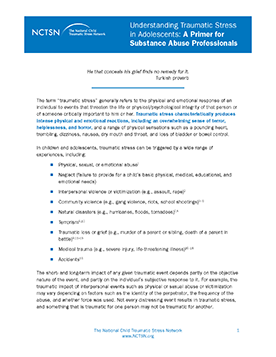
Provides statistics about adolescent trauma and substance abuse.
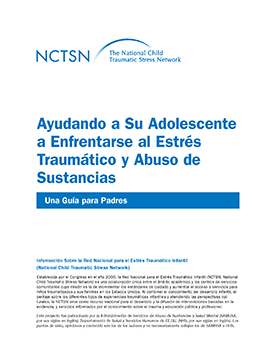
Offers parents and caregivers whose teen might be or is experiencing substance abuse and/or stress from a traumatic event.
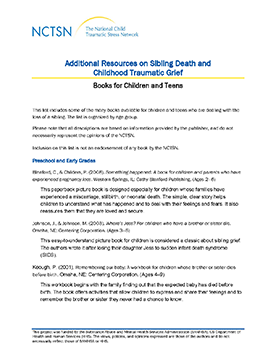
Gives a list of resources for children experiencing childhood traumatic grief. This list includes a breakdown of resources by developmental age.
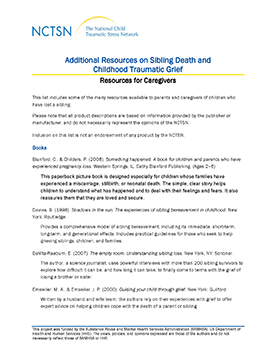
Gives a list of resources for parents and caregivers who have children experiencing childhood traumatic grief. This list includes a breakdown of resources by medium type such as books or videos.
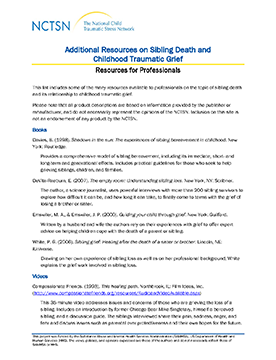
Gives a list of resources for professionals working with childhood traumatic grief. This list includes different mediums for professionals to use such as books or videos.
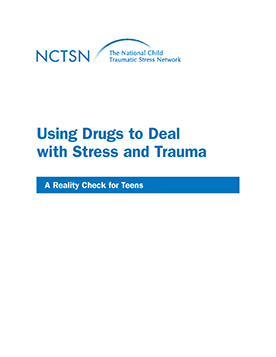
Offers teens information about trauma, how it can affect them, and why they might use alcohol or drugs to deal with their experiences.
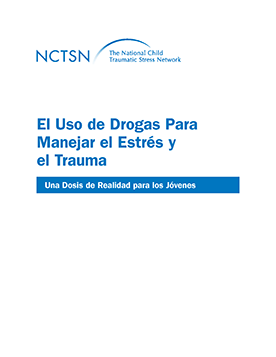
Ofrece a los adolescentes información sobre lo que es el trauma, cómo puede afectarlos y las razones por las que podrían llegar a consumir alcohol o drogas para enfrentar sus experiencias.
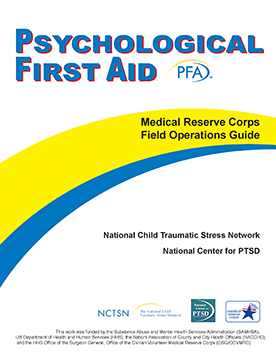
Gives guidance on responding to disaster, violence, or terrorism events using the Psychological First Aid intervention.
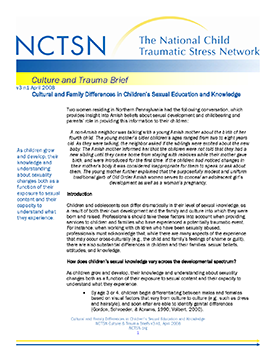
Describes the cultural and family differences in children’s sexual education and knowledge.
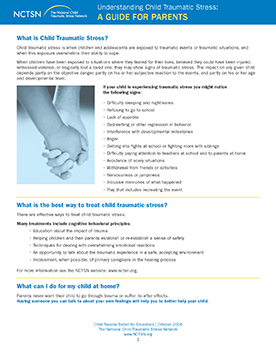
Offers parents information about child traumatic stress (CTS), the best way to treat CTS, what parents can do at home for their children, and how parents can make sure their children receive support at school.

Offers caregivers advice on helping children deal with the complex emotions that arise when the death of family member or other important person in a child's life is suspected, but not confirmed.